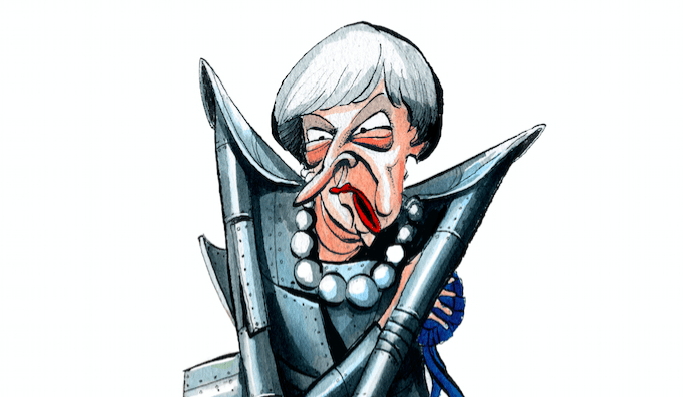Only one Cabinet member – Chris Grayling – had a good word to say about Theresa May and even he waited hours to say it. The silence of the others underlines the scale of trouble that the Prime Minister is in with her own party after blowing its majority in pursuit of a personal mandate. If she had won a landslide (which seemed to be there for the taking), she wanted to make it a very personal landslide, asking people to ‘vote for me’ rather than her party. As I say in my Daily Telegraph column today, the defeat must now be owned by her personally. And the silence of her Cabinet is intended to let her dwell upon this fact: she shut most of them up during the campaign, hoping to personalise the glory of victory. They now want her to personalise the misery of defeat.
She is not being defenestrated because her party doesn’t want a leadership election now, having demeaned itself enough in the eyes of the electorate. Another Boris v Gove debacle could mean another election and Jeremy Corbyn in No. 10; stopping this is now the number one Tory priority (more so than Brexit). So they want to make May work, at least for now. James Forsyth revealed yesterday the proposal for a deputy Prime Minister, who might act as a bridge between the leader and the party. That a bridge needs to be built says much about the unforgivable distance that Mrs May has allowed to emerge between her and her party in not even a year.
She was chosen as leader because she didn’t have any allies. The allies of Michael Gove, Boris Johnson etc gunned each other down after the EU referendum and she was the only Cabinet member who didn’t really have anyone around her.
Tory leaders tend to be chosen because of who they’re not, not who they are: Thatcher wasn’t Heath, Major wasn’t Heseltine, IDS wasn’t Portillo, Cameron wasn’t David Davis. And May wasn’t anybody. At first this went down quite well amongst the public: she came across as an everyday British woman with her feet on the ground, a relief after the bling of Tony Blair, David Cameron and George Osborne. But the campaign showed her to be rather average – if anything, below average. Robotic in her responses, a trait revealing not steeliness but her lack of imagination. Also, the country has rather large questions facing it – made all the more acute by the terrorist atrocities. And what did she have? Cliché, banality and nothing more. Every month she’d make a good speech, but she was unable to move beyond this mode – she was stuck in third gear. Prime Ministers need to be able to move into fifth, when the occasion arises.
Her Cabinet tolerated this; they didn’t mind being led by a Maybot as long as it was programmed to deliver a clean Brexit. But being Tory leader is a contract: you bring victory, you can do what you like. Bring defeat, and you’re a goner.
So she’ll stay – as one minister put it to me, she’ll be a ‘prisoner of the Cabinet’ with her reputation and authority shot to pieces. But this will only ever work as a temporary solution. Listening to the demands that Cabinet members have of her, I was left with one inescapable conclusion: they want her to change into someone else, she won’t and she can’t.
So Theresa May will go – make no mistake about that. She will never be forgiven, by the country or her party, for this debacle. But the Tories also know that, given the damage that she has inflicted on their party, they’re in no fit state to fight another general election. And as soon as they’re ready, they’ll get rid of her. It’s a question of when, not if.







Comments